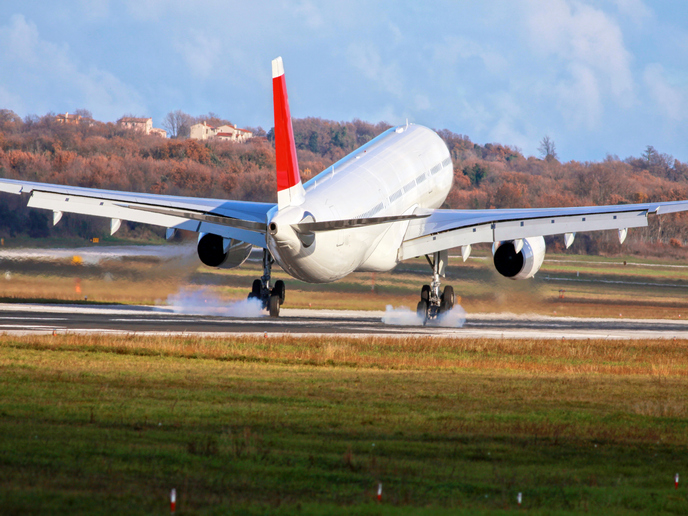Novel aircraft-integrated ventilation concepts to reduce noise in aircraft cabins
Aircraft cabin noise is a comfort concern for passengers and an occupational health and safety issue for cabin and maintenance crews. Aircraft ECSs – i.e. cooling and ventilation systems – are a key contributor, yet the fundamental physics of confined-flow turbulence remain poorly understood. The EU-funded IDEALVENT (Integrated design of optimal ventilation systems for low cabin and ramp noise) project set out to investigate aircraft noise, focusing on modelling the acoustic and aerodynamic interaction between ECS subcomponents. To provide a deeper understanding of these interaction mechanisms, project partners undertook extensive experimental studies and advanced analytical and numerical developments. They investigated aerodynamic and acoustic installation effects through innovative experimental methods. As such, robust multimodal decomposition techniques based on microphone and loudspeaker arrays were developed. Researchers also explored integrated passive flow and noise control strategies in the laboratory initially and then on full-scale industrial equipment. Knowledge gained in the experimental and numerical investigations of the installation effects enabled team members to devise optimised noise mitigation strategies with the greatest potential for reducing ECS noise. IDEALVENT’s new concepts for the design of aircraft ventilation systems will lead to reductions in cabin noise of 3-10 decibels. Such improvements should ultimately reduce the adverse health effects of noise. The techniques will also be applicable to other forms of noise reduction. Lastly, the project contributes directly to meeting several air transport objectives of the Advisory Council for Aviation Research and Innovation in Europe (ACARE)'s Strategic Research and Innovation Agenda as well as its FlightPath 2050 vision for aviation.
Keywords
Aircraft cabin noise, environmental control systems, IDEALVENT, ventilation systems







